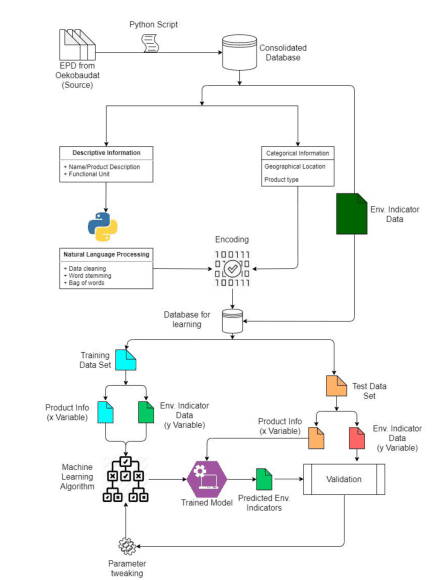Implementing Artificial Intelligence Techniques to Predict Environmental Impacts: Case of Construction Products

Nowadays, product designers, manufacturers, and consumers consider the environmental impacts of products, processes, and services in their decision-making process. Life Cycle Assessment (LCA) is a tool that assesses the environmental impacts over a product’s life cycle. Conducting a life cycle assessment (LCA) requires meticulous data sourcing and collection and is often time-consuming for both practitioner and verifier. However, predicting the environmental impacts of products and services can help stakeholders and decision-makers identify the hotspots. Our work proposes using Artificial Intelligence (AI) techniques to predict the environmental performance of a product or service to assist LCA practitioners and verifiers. This approach uses data from environmental product declarations of construction products. The data is processed utilizing natural language processing (NLP) which is then trained to random forest algorithm, an ensemble tree-based machine learning method. Finally, we trained the model with information on the product and their environmental impacts using seven impact category values and verified the results using a testing dataset (20% of EPD data). Our results demonstrate that the model was able to predict the values of impact categories: global warming potential, abiotic depletion potential for fossil resources, acidification potential, and photochemical ozone creation potential with an accuracy (measured using R2 metrics, a measure to score the correlation of predicted values to real value) of 81%, 77%, 68%, and 70%, respectively. Our method demonstrates the capability to predict environmental performance with a defined variability by learning from the results of the previous LCA studies. The model’s performance also depends on the amount of data available for training. However, this approach does not replace a detailed LCA but is rather a quick prediction and assistance to LCA practitioners and verifiers in realizing an LCA.
